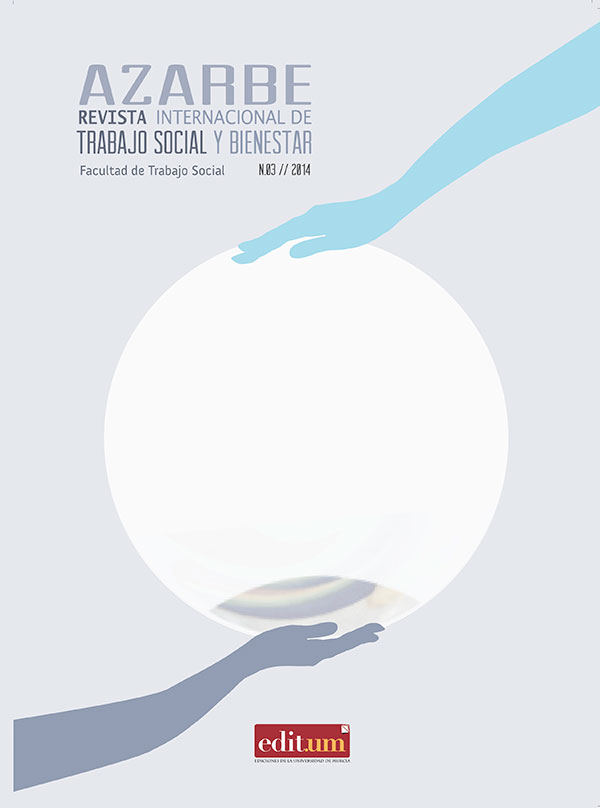People with intellectual diversity in prison. Challenges to Social Work
Abstract
Introduction. Communication addresses the issue of persons with disabilities within the criminal-justice system, focusing on the reality of their families who are directly involved in the process of exclusion that this group represents. Further characterization of the families, mainly the relationship that links them with social protection systems involved, from the perspective of social work with families is discussed. Material and Methods. The results are collected from a qualitative approach, developed in a line of research in intellectual disabilities. Data are used in-depth interviews. Results. Families are disoriented when their relative with disabilities enters the criminal-justice system. This confusion often comes from a long process of disagreements with social protection systems, where they don’t find a way out to their needs. Family social work intervention through socio-therapeutic processes with families of people with intellectual disabilities is inadequate. Discussion. The issue of people with intel-lectual disabilities or mental illness in the criminal-prison system, and their families require a specific intervention from Social Work. This action goes beyond the “logic of resources” because they have not found a “deal” within the protection systems that would suit your needs. These complex cases pass through a process of exclusion, which eventually ends up in jail.Downloads
-
Abstract1320
-
PDF (Español (España))994
Las obras que se publican en esta revista están sujetas a los siguientes términos:
1. El Servicio de Publicaciones de la Universidad de Murcia (la editorial) conserva los derechos patrimoniales (copyright) de las obras publicadas, y favorece y permite la reutilización de las mismas bajo la licencia de uso indicada en el punto 2.
2. Las obras se publican en la edición electrónica de la revista bajo una licencia Creative Commons Reconocimiento-NoComercial-SinObraDerivada 3.0 España (texto legal). Se pueden copiar, usar, difundir, transmitir y exponer públicamente, siempre que: i) se cite la autoría y la fuente original de su publicación (revista, editorial y URL de la obra); ii) no se usen para fines comerciales; iii) se mencione la existencia y especificaciones de esta licencia de uso.
3. Condiciones de auto-archivo. Se permite y se anima a los autores a difundir electrónicamente las versiones pre-print (versión antes de ser evaluada) y/o post-print (versión evaluada y aceptada para su publicación) de sus obras antes de su publicación, ya que favorece su circulación y difusión más temprana y con ello un posible aumento en su citación y alcance entre la comunidad académica. Color RoMEO: verde.














